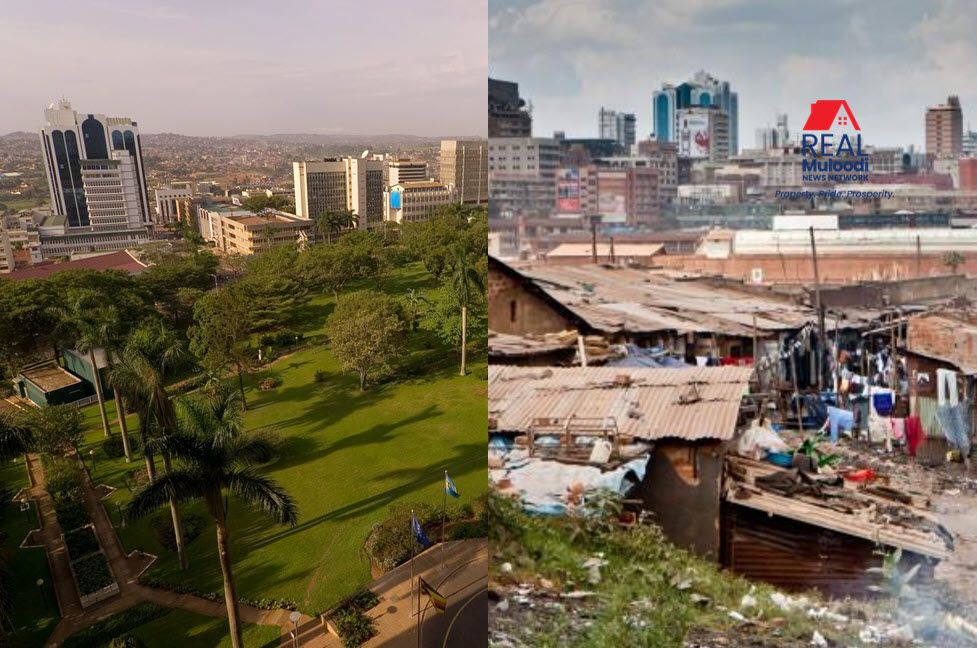UGANDA, Kampala | Real Muloodi News | It is a truth universally acknowledged that a Ugandan in possession of a good fortune will look to purchase real estate as a means to secure wealth. It is the Ugandan dream to acquire a profitable real estate investment and become a real muloodi, it’s ingrained in our culture.
However real estate investments that turn a good profit work for some only because they cannot work for all. If we want to make housing affordable for everyone, then it needs to be cheap and widely available. And if we want that housing to act as a wealth-building vehicle, home values have to increase significantly over time. How do we ensure that housing is both appreciating in value for homeowners but cheap enough for all would-be homeowners to buy in? The answer is, we can’t.
The struggle between housing equality and real estate investment has been ongoing for many years in Uganda. However, the reality is becoming progressively more dire for many Ugandans in the face of the country’s rapidly growing population and the lack of affordable housing options available.
According to Habitat for Humanity, the housing deficit in Uganda is estimated to be upward of 2.4 million units, with 900,000 housing units in poor condition. The organisation predicts that by 2025, the country will have a housing deficit of four million.
As the demand for housing continues to rise, it is becoming increasingly difficult for many Ugandans to secure a roof over their heads, reinforcing the stark reality that you can’t have both housing equality and rapidly increasing real estate prices.
On one hand, real estate investment is critical for the country’s economic growth, providing jobs, increasing tax revenue, and attracting foreign investment. Real estate developers invest in construction projects, making it possible to build more houses and meet the growing demand for housing. This in turn, helps to grow the economy and improve the standard of living for many Ugandans.
On the other hand, the lack of affordable housing options available in the country is a major concern. The cost of housing is rising, making it increasingly more difficult for many low-income families to secure a place to call home. This leads to the formation of informal settlements and slums, which are often overcrowded and lack basic services such as running water and sanitation. This creates a vicious cycle of poverty, as families living in these conditions are unable to access education and employment opportunities, perpetuating the poverty cycle.
The government has attempted to address the issue by implementing policies that encourage the development of low-cost housing, such as the Uganda National Housing Policy of 2016. However, it appears to have been largely ineffective in addressing the housing deficit in Uganda, just like its failed predecessor the National Shelter Strategy (NSS) of 1992. Real estate developers have continued to focus on building high-end properties, as these are more profitable. This leaves many low-income families without a viable housing option, as they cannot afford the cost of housing.
Therefore, the housing crisis in Uganda is a complex issue that requires a multi-faceted solution. While real estate investment is important for the country’s economic growth, it is equally important to ensure that everyone has access to affordable housing. The government must work with developers, investors, and community leaders to find a solution that balances the needs of the economy and the needs of the people. Until this is achieved, the struggle for housing equality will continue, and many Ugandans will remain without a place to call home.
When Ugandans buy homes under the expectation that values always appreciate, that’s an expectation that someone else will always pay that increased price. And with that comes the heavy price paid by the Ugandan society as a whole.
Fundamentally, Uganda needs to shift away from understanding housing as an investment and toward treating it as consumption. No one expects their TV or their car to appreciate. Instead, Ugandans should recognise that expensive purchases should reflect their particular desires and that the cost should be worth the use they get out of them.
Policy makers should make their focus a housing market abundant with cheap and diverse housing types able to satisfy the needs of people at every income level and stage of life. As such, people would move between homes as their circumstances necessitate. Housing would stop being scarce and thus its attractiveness as an investment would diminish greatly, for both homeowners and larger entities.
Let housing be a home; let it provide shelter, access to good jobs, and safe and healthy communities. Let housing be more than just an investment.
READ MORE LIKE THIS:
Combating the Cost of Cement with Interlocking Stabilised Soil Blocks (ISSBs)
Over 60 Elderly People get Free Houses from Habitat for Humanity



